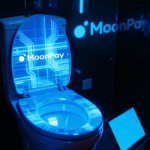Ripple is entering a pivotal phase in institutional blockchain adoption, marked by strategic partnerships that are boosting its visibility among major banks and financial institutions. With these developments, there is a growing interest in the digital currency XRP, which is being recognized for its potential in enhancing cross-border payment processes.
In conjunction with Ripple, Paydax (PDP) is emerging as a formidable player in the global payments sector. This next-generation decentralized finance (DeFi) bank is redefining traditional finance’s perspective on digital liquidity, and the growing enthusiasm from institutional investors reflects a significant shift in market dynamics.
Ripple has long been at the cutting edge of introducing blockchain efficiency to the financial landscape. The company offers rapid settlement solutions and transparent transactions, effectively bridging traditional banking systems with digital asset functionalities via its XRP token. Ripple is committed to establishing a reliable network characterized by regulatory clarity, catering to large financial institutions that seek scalable and efficient blockchain solutions.
Simultaneously, Paydax is addressing several pressing financial challenges faced by institutions and users alike, including liquidity access, risk management, and capital efficiency. The platform allows users to borrow, lend, and insure their assets within a secure, borderless environment, thereby minimizing the need for intermediaries. One of its standout features is the ability to unlock liquidity by borrowing against assets instead of selling them, a significant advantage that helps users maintain their long-term investment positions while accessing working capital.
Paydax emphasizes transparency and security as core principles of its platform, making it a trusted entry point for both individuals and institutions venturing into decentralized finance. Several key measures underline its commitment to secure operations, such as comprehensive contract audits conducted by leading auditing firms, a fully doxxed team to enhance investor confidence, strategic partnerships that safeguard user assets, and a fully operational decentralized application (dApp) that validates the project’s practicality beyond theoretical concepts.
Pointing to the reasons behind the rising investor interest, Paydax (PDP) is seen as a solution to real financial problem sets akin to Ripple’s contributions to institutional finance. The platform is designed with a focus on utility rather than speculation, offering a variety of services that allow users to access liquidity without asset liquidation while potentially yielding returns of up to 15.2% APY. The initial token price set at a low $0.015 during its presale has attracted both retail and larger investors, further incentivized by promotional bonuses.
Additionally, holding PDP tokens presents unique benefits for investors, including liquidation rewards, reduced loan fees with more favorable terms, governance rights regarding significant decisions, and enhanced loan-to-value ratios.
As the digital finance landscape becomes increasingly sophisticated, banks and financial institutions are transitioning from mere observers of blockchain innovation to active participants. XRP continues to demonstrate real-world utility by facilitating faster settlements and enhancing efficiency in cross-border transactions. Meanwhile, innovative projects like Paydax are gaining traction for their ability to simplify digital transactions and effectively address critical financial issues.
For those interested in becoming part of this new financial ecosystem, Paydax offers multiple channels for engagement. Interested individuals can access the Paydax community through its website and social media platforms.








